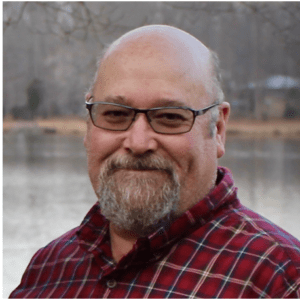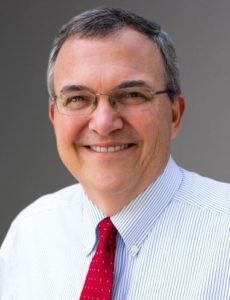American missionaries serving in far-away places continue to endure significant challenges due to the COVID-19 pandemic, including limits on travel and in-person ministry, a scarcity of international volunteers and in some cases feelings of guilt for being vaccinated in communities where adequate or effective vaccines remain unavailable.
“There is no way to spin it that this pandemic has been helpful or that we have gotten around it,” said Sam Harrell, associate coordinator of global missions for the Cooperative Baptist Fellowship.
While CBF and other Christian groups that support international missions describe an inspiring flexibility and creativity in ministry that have enabled operations to continue in far-flung locations, the hoops they have had to jump through have been, at times, extraordinary.

Sam Harrell
Harrell said CBF leaders have not held face-to-face meetings with the Fellowship’s 60 field personnel since February 2020. Its volunteer program that sends Americans to help overseas ministries has been shut down since March of that year.
“We don’t want people carrying the virus to an unsuspecting global population, so the only volunteers we have are domestic as long as local protocols allow it,” Harrell said.
The emergence of vaccines earlier this year also posed a variety of challenges for CBF field personnel and the missionaries of other faith-based groups. These sometimes included risking health-threatening travel to be vaccinated, or choosing not to get the shots. Still others felt conflicted about being vaccinated when the people they serve are not.
“I think there is guilt in some situations, but I also think field personnel feel that they take themselves out of the equation in terms of spreading the disease,” Harrell said. “And when they can operate without spreading the disease, it assuages that.”
But missionaries and their commissioning agencies often have tapped into an ingenuity and resilience that has sustained their missions even in the most challenging of conditions.
“Ministry continues and the sharing of the gospel continues by taking on different shapes and forms based on presenting needs,” said Jim Bell, associate executive director for global mission with International Ministries, the mission agency of American Baptist Churches in the USA.

Jim Bell (Photo/International Ministries)
He recalled one family serving as global servants — the denomination’s term for missionaries — who needed to visit the U.S. for a few months from their mission in Hungary. “They continued leading an English-language Bible study online for students in Hungary.”
Two theological educators based in Malaysia had to return to renew visas and were unable to return when the nation shut down due to the pandemic. “So, they continued teaching in the seminary online,” Bell said.
“We have global servants in Bangkok, Thailand, who work with people who are subject to human trafficking. Their ministry now shifts to providing food and other care items in the community when regular programs aren’t functioning. There have been many adjustments like that.”
CBF field personnel often used lock-down periods to connect with financial and spiritual supporters in the U.S., Harrell said. “Those times provided unique opportunities for field personnel to engage with their church constituents who were also locked down.”
This was an effective option for those who opted to delay regularly scheduled partnership development trips to the U.S. And it was a choice CBF gave to its field personnel to make, Harrell explained. “The central ethic is to do no harm to others and to ourselves, so we told them if they don’t have to travel, don’t.”
That was the approach some faith groups also took on vaccinations, he said. There were those that required a return to the U.S. for inoculations while others left the decision to missionaries in the field. CBF and ABCUSA gave personnel the option of pursuing the course best for them.
“The central ethic is to do no harm to others and to ourselves, so we told them if they don’t have to travel, don’t.”
“At no time did we issue a directive that people had to stay in place. We said from the outset, if you feel you need to come back to the U.S. to be vaccinated, you are free to do so. I would say, almost without exception, field personnel stayed put,” Harrell said.
“And we told them if you need to come back that it wouldn’t be counted as vacation. We called it ‘COVID grace’ — we just threw our systems out the window to do what was needed.”
Some field personnel chose to get the Chinese or Russian vaccines available in their locations, even though those doses were of questionable efficacy from an American perspective. Altogether, 98% of CBF field personnel are vaccinated, Harrell said, and most did it locally.
International Ministries provided detailed guidance about emerging vaccines to its global servants and offered to facilitate vaccinations in the U.S. for those who couldn’t be vaccinated in their host countries, Bell said. “There were some who did that, and we had a few cases where people returned for extended stays because of the health situations in some host countries. It’s been widely varied.”
Policies and attitudes about the pandemic and vaccines often are radically different in developing nations than in industrialized nations, Bell added. “In many places in the world, COVID is just layered on, or interwoven with, other significant political social economic upheavals.”
He cited Haiti, where systemic and generational poverty, political strife and repeated natural disasters make the coronavirus just one of many life-threatening problems.
“In all these places we just can’t think about COVID in isolation from the other things that our partners, and people in general, are experiencing in their context.”
Related articles:
Despite COVID restrictions, faith-based agencies continue to improve lives in Africa
For missionaries, coronavirus creates ‘an interesting moment in plagues and pestilence’


